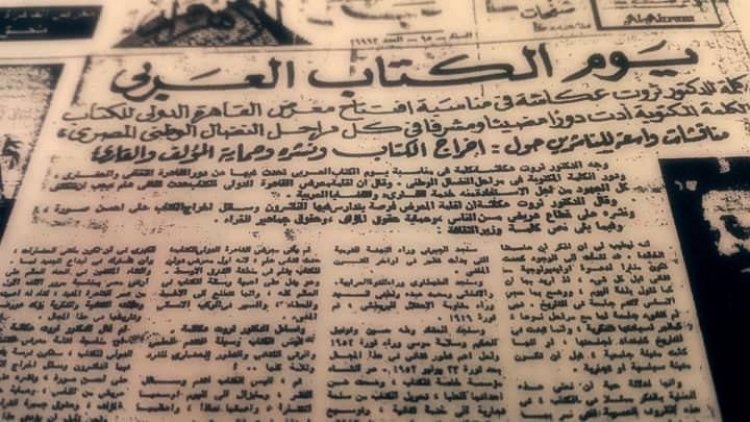Gamal Abdel Nasser and Culture

By/ Amr Sabah
In the year 1969 AD, amidst the backdrop of the War of Attrition between Egypt and Israel, the celebration of the one-thousandth anniversary of the founding of Cairo took place. Despite the ongoing war, a grand cultural celebration was held to immortalize this occasion, which would not recur until another thousand years. The festivities commenced with the opening of the Cairo International Book Fair, the first Egyptian, Arab, and African book fair.
During Gamal Abdel Nasser's era, the Ministry of Culture and the Supreme Council for Arts and Literature, which later transformed into the "Supreme Council of Culture," were established. The General Authority for Books was also founded, and the National Library and Archives were developed and relocated to their current building on the Nile Corniche in Cairo. In addition, the Academy of Arts was established in 1959, comprising various specialized artistic institutes. Various divisions of the Opera House were established, including the Cairo Symphony Orchestra and Arab music ensembles, the National Circus, and the Puppet Theater.
The Sayed Darwish Hall at the Academy was built to hold concerts. The groundwork was laid for a collection of museums that remain among Egypt's greatest museums to date. The development of the Giza Plateau began, and sound and light shows were introduced, unveiling the discovery of the Solar Boats. Efforts were made to rescue the temples of Philae and Abu Simbel and the Egyptian antiquities in Nubia. Hundreds of cultural palaces were established in cities, centers, and villages, and a Public Culture Authority was formed. Thousands of books were published at affordable prices under the initiative of the "One Thousand Books Project," both the first and second editions.
All these accomplishments are documented with dates, but none of it matters as long as the sponsored pages of Hamza Namira's Muslim Brotherhood, Shokshak's liberalists, and Shawkat Shemesharji on Facebook and Twitter continue to bark and howl day and night, claiming that Jamal Abdel Nasser was an enemy of culture and intellectuals and wasn't an intellectual in the first place.
